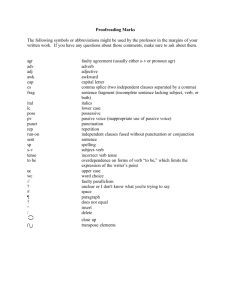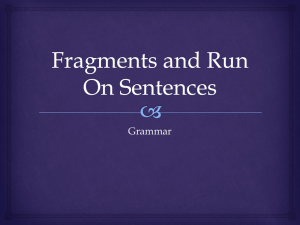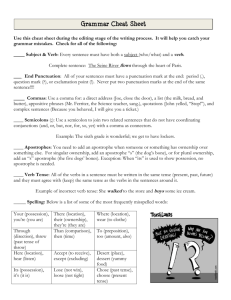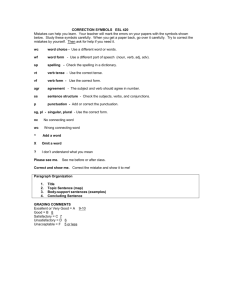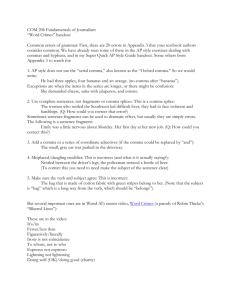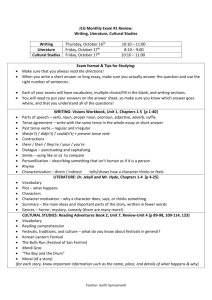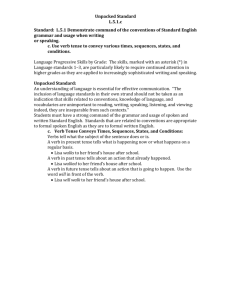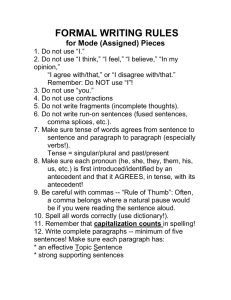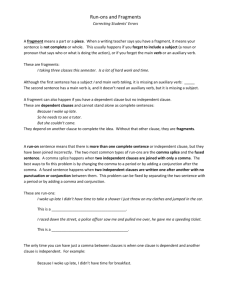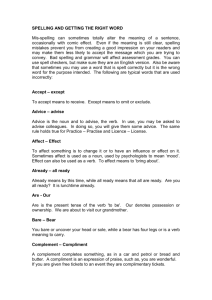CORRECTION SYMBOLS - Bakersfield College
advertisement
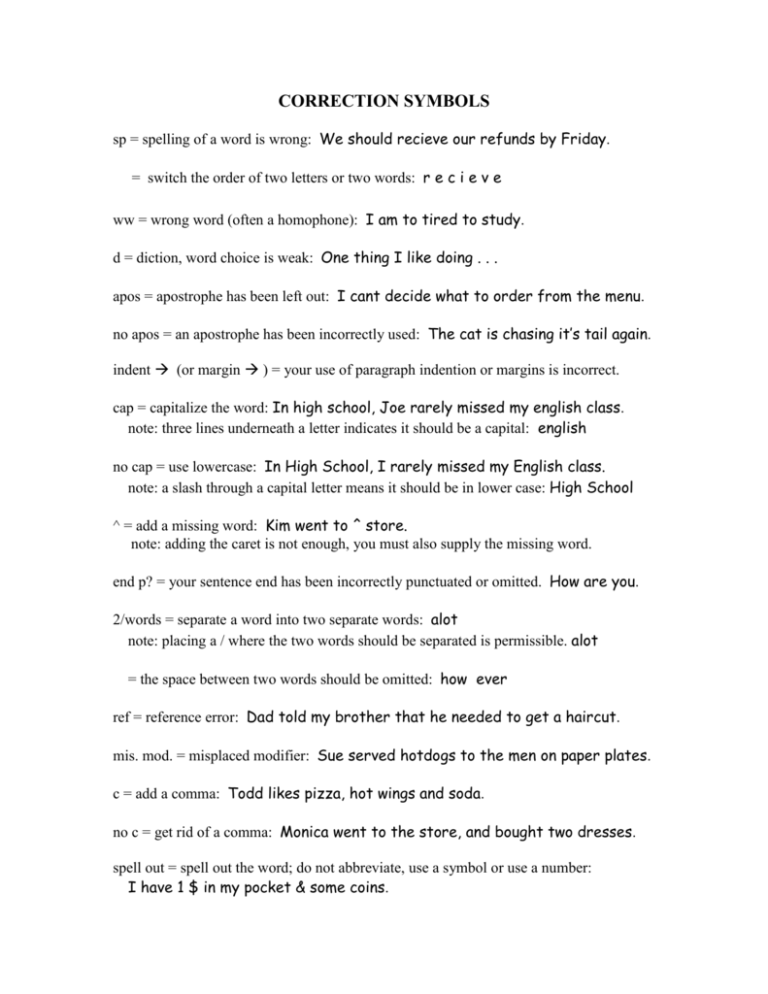
CORRECTION SYMBOLS sp = spelling of a word is wrong: We should recieve our refunds by Friday. = switch the order of two letters or two words: r e c i e v e ww = wrong word (often a homophone): I am to tired to study. d = diction, word choice is weak: One thing I like doing . . . apos = apostrophe has been left out: I cant decide what to order from the menu. no apos = an apostrophe has been incorrectly used: The cat is chasing it’s tail again. indent (or margin ) = your use of paragraph indention or margins is incorrect. cap = capitalize the word: In high school, Joe rarely missed my english class. note: three lines underneath a letter indicates it should be a capital: english no cap = use lowercase: In High School, I rarely missed my English class. note: a slash through a capital letter means it should be in lower case: High School ^ = add a missing word: Kim went to ^ store. note: adding the caret is not enough, you must also supply the missing word. end p? = your sentence end has been incorrectly punctuated or omitted. How are you. 2/words = separate a word into two separate words: alot note: placing a / where the two words should be separated is permissible. alot = the space between two words should be omitted: how ever ref = reference error: Dad told my brother that he needed to get a haircut. mis. mod. = misplaced modifier: Sue served hotdogs to the men on paper plates. c = add a comma: Todd likes pizza, hot wings and soda. no c = get rid of a comma: Monica went to the store, and bought two dresses. spell out = spell out the word; do not abbreviate, use a symbol or use a number: I have 1 $ in my pocket & some coins. plural = use plural (more than one) form, not singular (one): I have two cat. frag = fragment: a fragment is a dependent clause or phrase punctuated as if it were an independent clause; it may require an addition of a subject or verb or more radical revision, or it may be fixed by attaching it to the preceding or following sentence: Tommy who is my next door neighbor. SV/agr = subject/verb agreement error: The stack of books are falling. PA/agr = pronoun/antecedent (noun) agreement error: Everyone lost their way. cs = comma splice error occurs when a comma alone has been used to connect/separate 2 independent clauses: I like him, he likes me. ro = run-on error (also called fused sentences or run-togethers) is the use of no punctuation between 2 independent clauses OR the use of a coordinating conjunction without a comma between 2 independent clauses: I like him he likes me. OR I like him and he likes me. awk = awkward phrasing, a reader can figure out what the writer means, but the writer hasn’t expressed himself accurately: In my third semester wasn’t easy. unclear = unclear; the writer has ineffectively expressed himself. not // = not parallel (faulty parallelism): Fire Fighters save lives using water hoses, axes, and performing CPR. shift = the verb tense is inappropriately shifting from past to present or vice versa OR a pronoun is inappropriately shifting from 1st to 2nd to 3rd person. Yesterday Terry went to the store and asks the clerk for toothpaste. OR When teens get their driver licenses, you are so happy. tense = the verb tense is incorrect (most often a past tense ending has been added or left off): Are we suppose to be using a dictionary? logic = your argument or point does not make sense; it is insupportable: People should wear their seat belts because otherwise they will die. vague = your idea has not been supported support? = your idea has not been supported for example? = your idea has not been supported.
